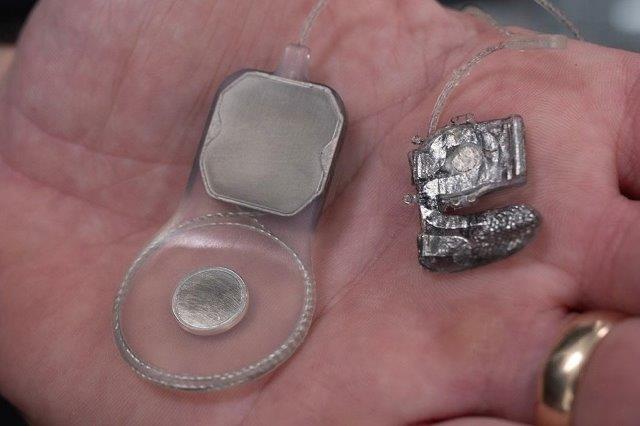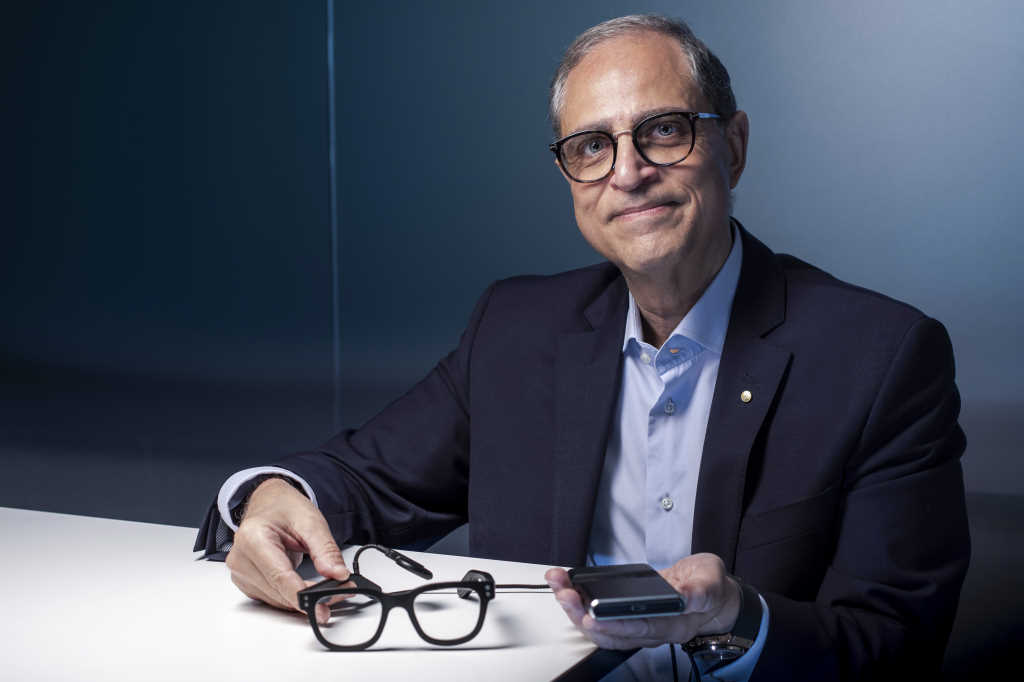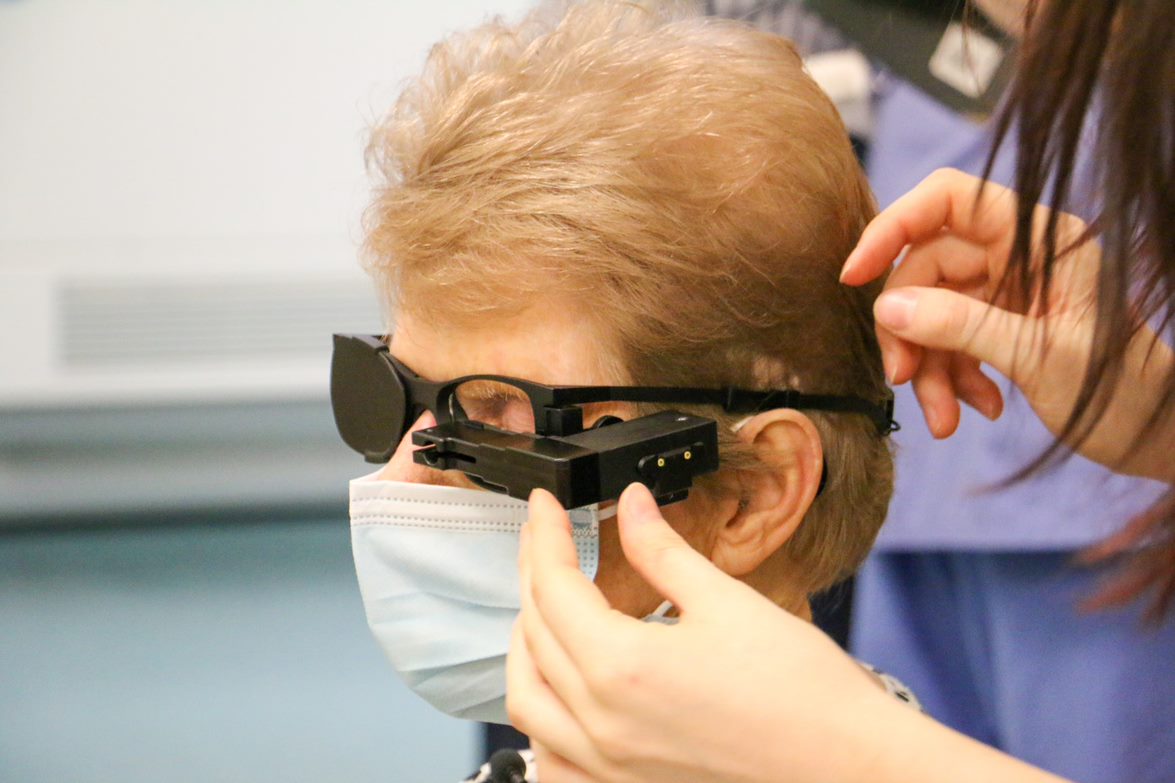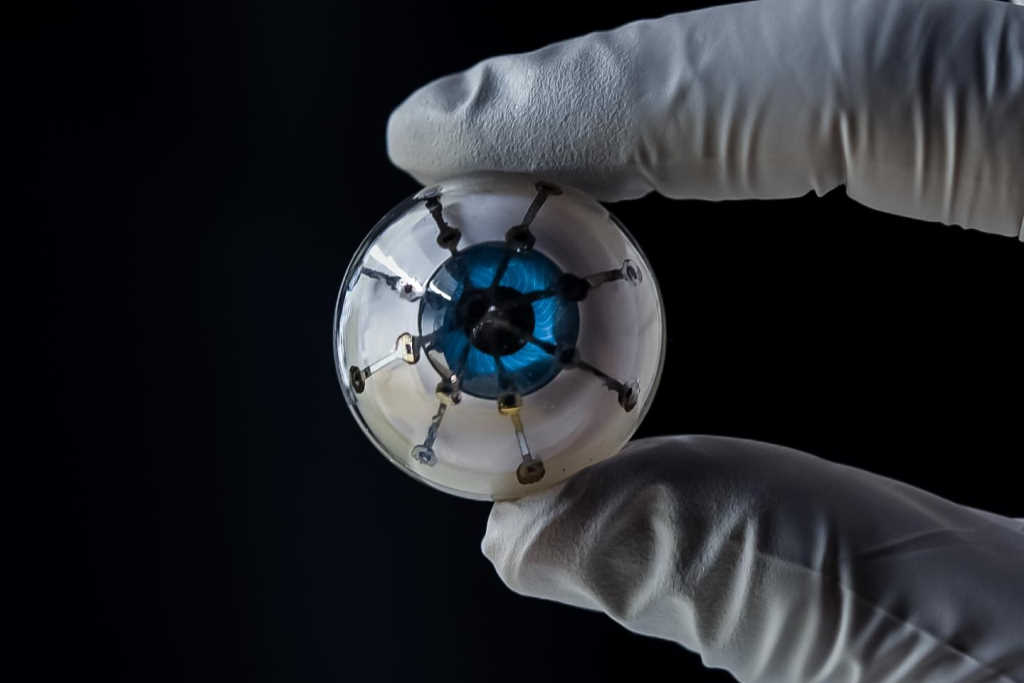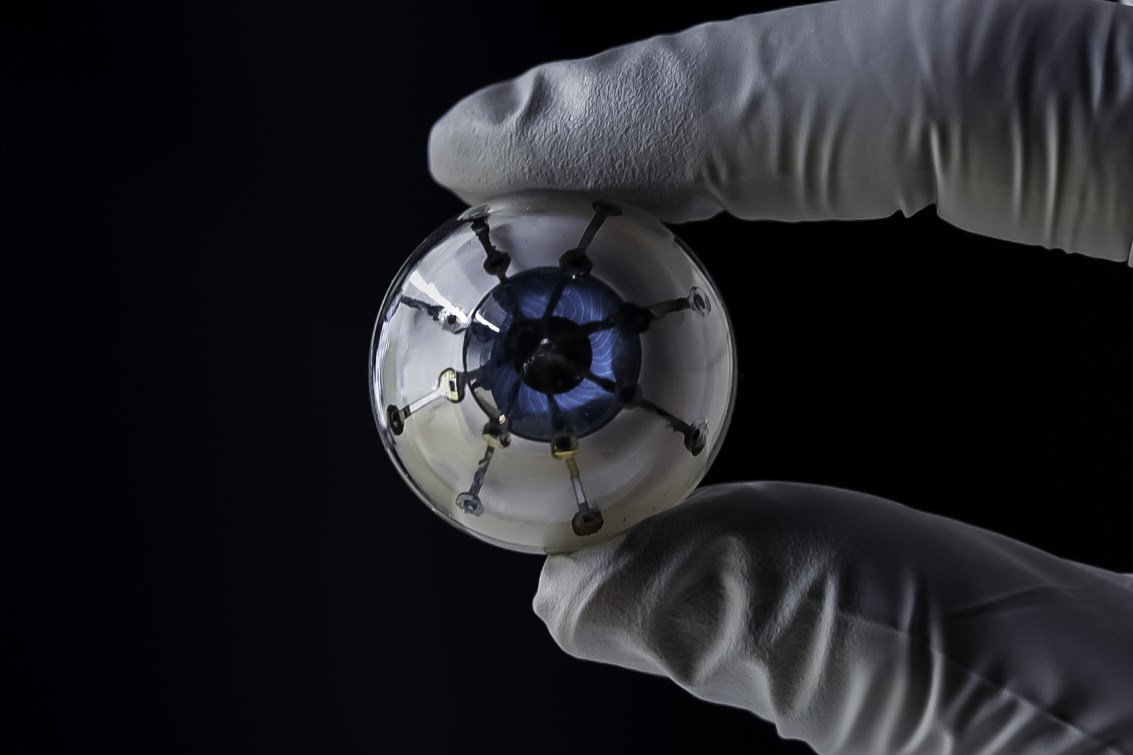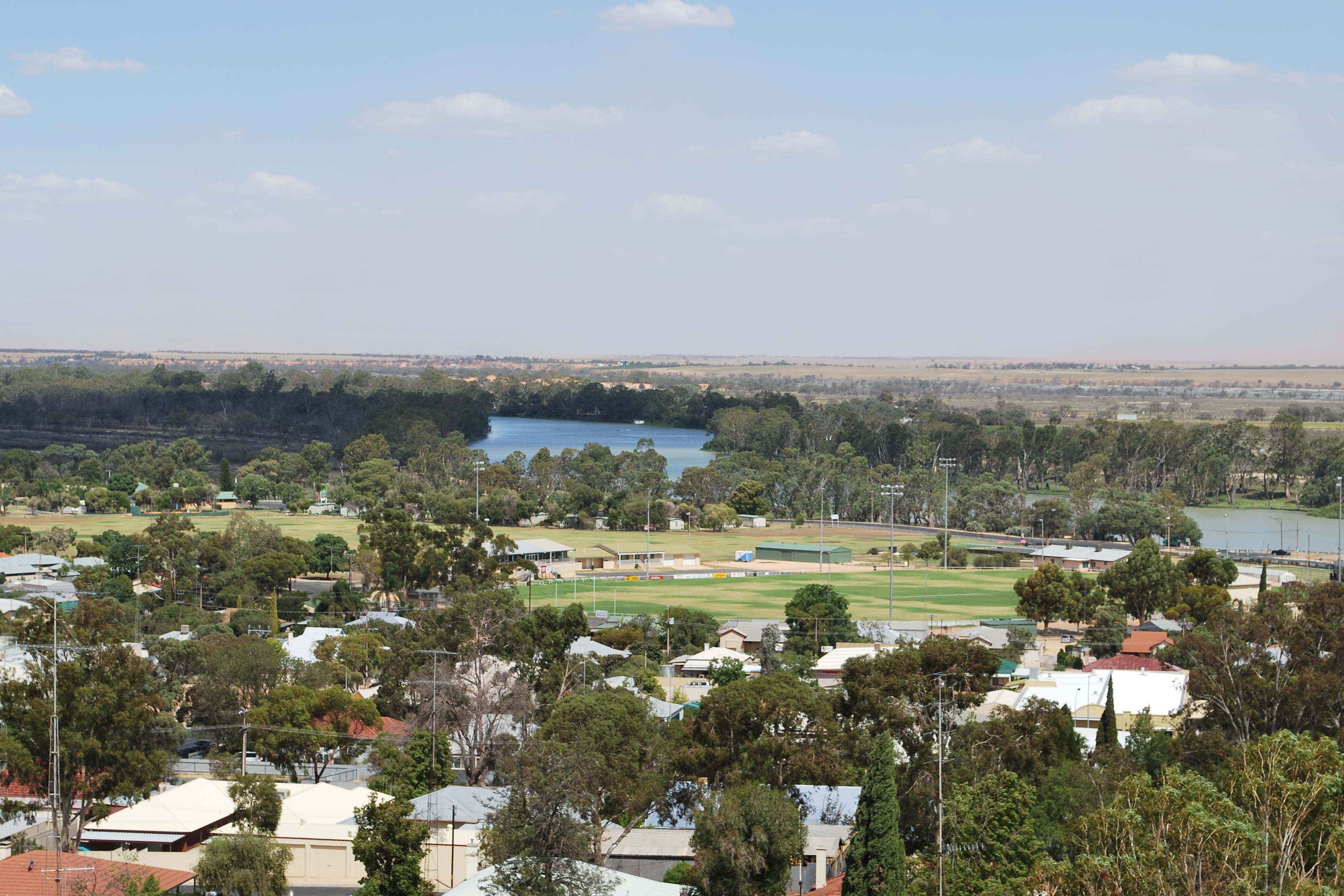Bionic eye looks to human trials
Researchers at the University of Sydney said their Phoenix99 bionic eye implant is ready for human trials, having demonstrated its safety in a three-month sheep model.
Biomedical engineers Professor Gregg Suaning and Samuel Eggenberger’s bionic eye is designed to restore some vision to patients with degenerative eye diseases such as retinitis pigmentosa. The system comprises a glasses-mounted camera, an implanted passive ‘suprachoroidal array’ of 98 electrodes to stimulate healthy retinal ganglion cells, and a telemetry implant beneath the skin behind the ear.
Eggenberger told SYFY Wire that high-resolution vision is not yet achievable, but that if the device is able to give just vertical lines where doors are, or bright spots where windows are, it would still be immensely useful. “We’re going from a total absence of vison to something that’s functional,” he said.
Although the next step will be human trials, Eggenberger is already envisioning applications beyond vision restoration. “There’s nothing that would stop us integrating cameras to capture something like infrared or give night vision. You don’t have to rely on actual incident light, you can look at it from different wavelengths,” he said.









